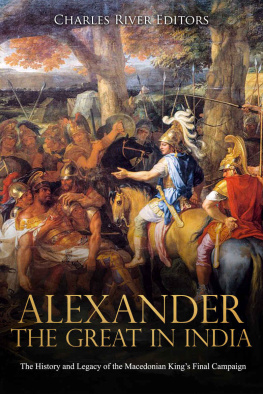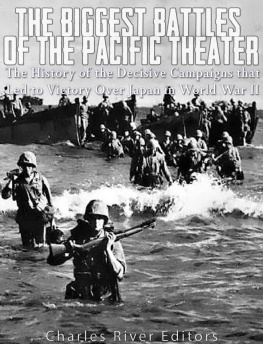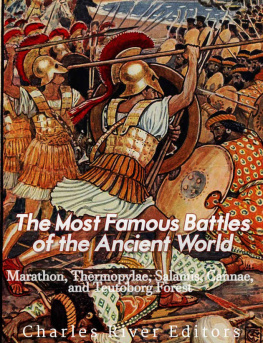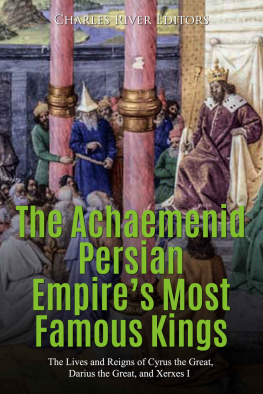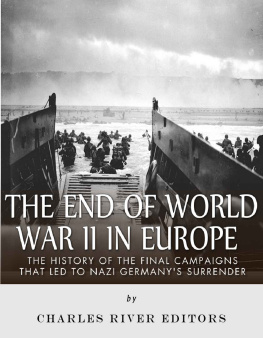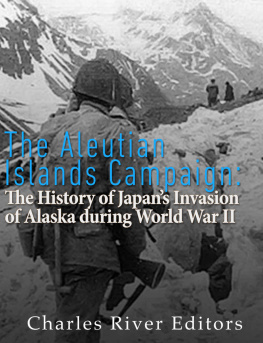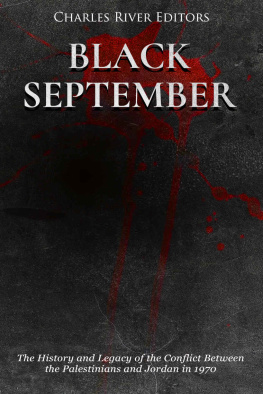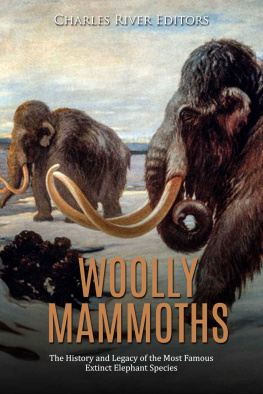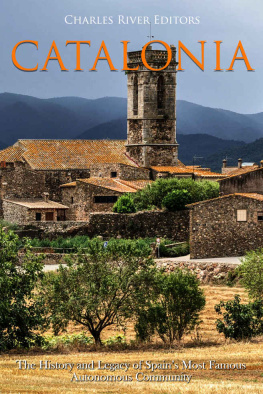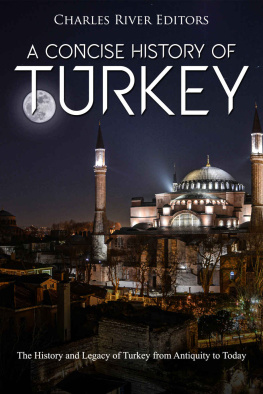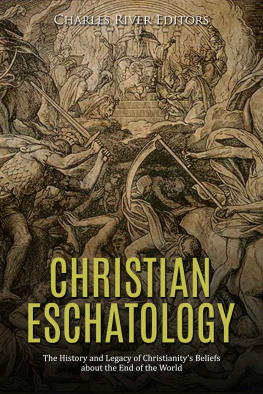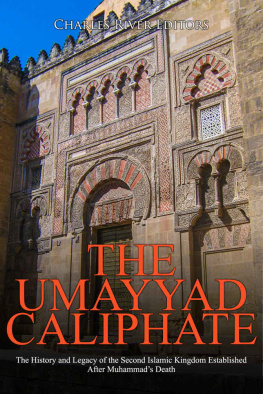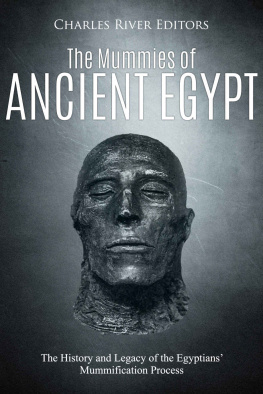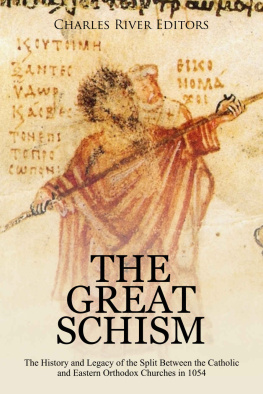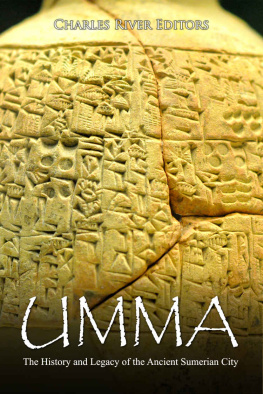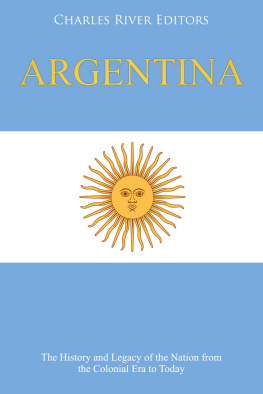Charles River Editors - Alexander the Great in India: The History and Legacy of the Macedonian King’s Final Campaign
Here you can read online Charles River Editors - Alexander the Great in India: The History and Legacy of the Macedonian King’s Final Campaign full text of the book (entire story) in english for free. Download pdf and epub, get meaning, cover and reviews about this ebook. year: 2019, publisher: Charles River Editors, genre: History. Description of the work, (preface) as well as reviews are available. Best literature library LitArk.com created for fans of good reading and offers a wide selection of genres:
Romance novel
Science fiction
Adventure
Detective
Science
History
Home and family
Prose
Art
Politics
Computer
Non-fiction
Religion
Business
Children
Humor
Choose a favorite category and find really read worthwhile books. Enjoy immersion in the world of imagination, feel the emotions of the characters or learn something new for yourself, make an fascinating discovery.
- Book:Alexander the Great in India: The History and Legacy of the Macedonian King’s Final Campaign
- Author:
- Publisher:Charles River Editors
- Genre:
- Year:2019
- Rating:3 / 5
- Favourites:Add to favourites
- Your mark:
- 60
- 1
- 2
- 3
- 4
- 5
Alexander the Great in India: The History and Legacy of the Macedonian King’s Final Campaign: summary, description and annotation
We offer to read an annotation, description, summary or preface (depends on what the author of the book "Alexander the Great in India: The History and Legacy of the Macedonian King’s Final Campaign" wrote himself). If you haven't found the necessary information about the book — write in the comments, we will try to find it.
Alexander the Great in India: The History and Legacy of the Macedonian King’s Final Campaign — read online for free the complete book (whole text) full work
Below is the text of the book, divided by pages. System saving the place of the last page read, allows you to conveniently read the book "Alexander the Great in India: The History and Legacy of the Macedonian King’s Final Campaign" online for free, without having to search again every time where you left off. Put a bookmark, and you can go to the page where you finished reading at any time.
Font size:
Interval:
Bookmark:
By Charles River Editors
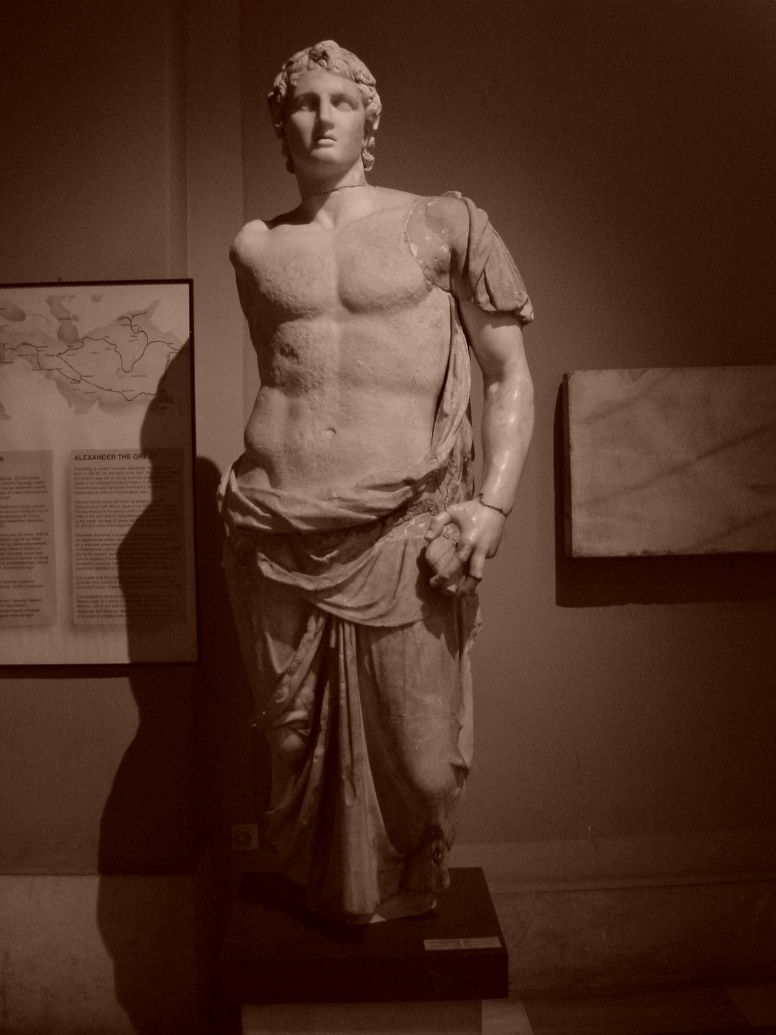
Giovanni Dall'Ortos picture of an ancient bust of Alexander

Charles River Editors is a boutique digital publishing company, specializing in bringing history back to life with educational and engaging books on a wide range of topics. Keep up to date with our new and free offerings with this 5 second sign up on our weekly mailing list , and visit Our Kindle Author Page to see other recently published Kindle titles.
We make these books for you and always want to know our readers opinions, so we encourage you to leave reviews and look forward to publishing new and exciting titles each week.
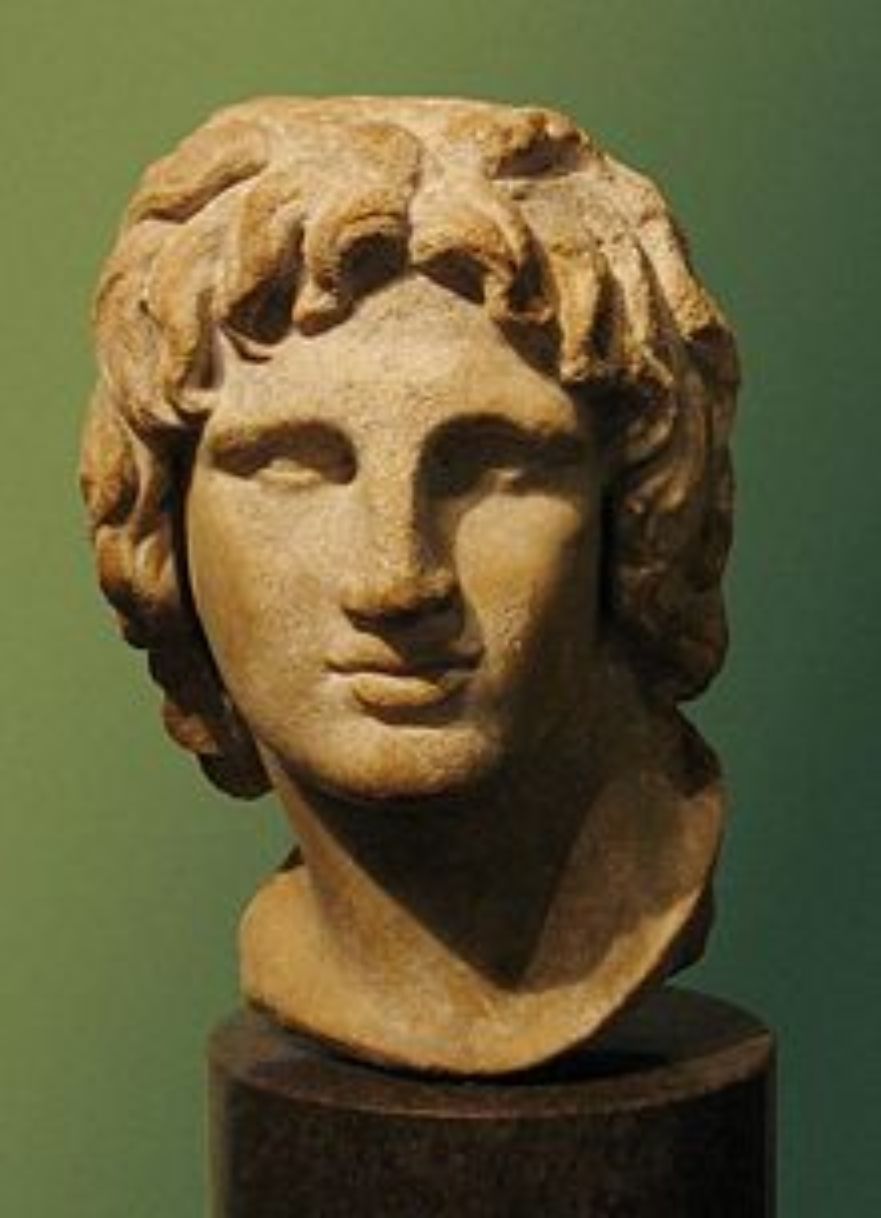
Andrew Dunns picture of an ancient bust of Alexander
As for the Macedonians, however, their struggle with Porus blunted their courage and stayed their further advance into India. For having had all they could do to repulse an enemy who mustered only twenty thousand infantry and two thousand horse, they violently opposed Alexander when he insisted on crossing the river Ganges also, the width of which, as they learned, was thirty-two furlongs, its depth a hundred fathoms, while its banks on the further side were covered with multitudes of men-at-arms and horsemen and elephants. For they were told that the kings of the Ganderites and Praesii were awaiting them with eighty thousand horsemen, two hundred thousand footmen, eight thousand chariots, and six thousand war elephants. - Plutarch
Over the last 2,000 years, ambitious men have dreamed of forging vast empires and attaining eternal glory in battle, but of all the conquerors who took steps toward such dreams, none were ever as successful as antiquitys first great conqueror. Leaders of the 20th century hoped to rival Napoleons accomplishments, while Napoleon aimed to emulate the accomplishments of Julius Caesar. But Caesar himself found inspiration in Alexander the Great (356-323 BCE), the Macedonian king who managed to stretch an empire from Greece to the Himalayas in Asia by the age of 30. It took less than 15 years for Alexander to conquer much of the known world.
At one point in antiquity, the Achaemenid Persian Empire was the largest empire the world had ever seen, but aside from its role in the Greco-Persian Wars and its collapse at the hands of Alexander the Great, it has been mostly overlooked. When it has been studied, the historical sources have mostly been Greek, the very people the Persians sought to conquer. Needless to say, their versions were biased, and attitudes about the Persians were only exacerbated by Alexander the Great and his biographers, who maintained a fiery hatred toward Xerxes I of Persia due to his burning of Athens. The Macedonians targeted many of his building projects after their capture of Persepolis, and they pushed an even bleaker picture of the king, one of an idle, indolent, cowardly, and corrupt ruler.
At the same time, after he had finished off that empire, Alexander must have been glad to leave Persia and its adjoining provinces at his back. Alexander was planning to march onwards, into India, and had made overtures to the wild tribesmen that inhabited the region that is now Pakistan, but he had been abruptly refused. The chieftains of the hill clans who guarded the passes of the mighty Hindu Kush mountains were determined to make a fight of it, secure in the knowledge that the high passes of their domains were virtually unconquerable. Alexander, never one to accept defiance, made his preparations and, in midwinter, a season traditionally reserved for rearmament and regrouping, he began his campaign. The Aspasioi, the Guraeans and the Assakenoi, inhabitants of the rocky valleys of north-western Pakistan, all opposed him, so Alexander destroyed their fortresses one by one, determined to extinguish them. The hill clans were fierce fighters, and each fortress, small though they generally were, was only carried by storm after days of vicious fighting which resulted in grievous losses among the Macedonian ranks. To give an idea of the brutality of this conflict, Alexander himself was seriously wounded twice during two separate sieges, taking a javelin through the shoulder fighting the Aspasioi and then a spear-thrust to the ankle in the assault against the Assakenoi fortress of Massaga. His reprisal was fierce: every fortress of the hill clans that did not surrender him was razed to the ground, and its inhabitants put to the sword, to the last man.
Despite the war-weariness of his veterans and many of his generals, after having vanquished the hill tribes Alexander pressed south and east into the Punjab. There he clashed with the most powerful enemy he had encountered since he had vanquished Darius at Gaugamela, the great Indian ruler Rajah Porus, whose domains included virtually the whole Punjab and who commanded an army tens of thousands strong. Alexanders force came face to face with Poruss army at the Hydaspes River, in 326 BCE Despite Poruss strong defensive position, Alexander succeeded in forcing a crossing. When Porus threw forward his war elephants, the shock element of his force, Alexanders indomitable phalanx proved equal to the task: his men had faced war elephants before, and instead of bracing to resist their charge they opened their ranks, letting the beasts charge through, then encircled them and brought them and their riders down with their pikes. The phalanx then made short work of the lightly armoured Indian infantry, while Alexanders Companion Cavalry and allied horsemen drove the enemy skirmishers and horsemen from the field. Porus was captured still trying to fight, and Alexander was so impressed with his bravery that he made him governor of his previous kingdom, even going so far as to grant him additional lands.
Some viewed the death of Alexanders favorite horse, Bucephalus, as a sign from the gods that it was time for Alexander to go home, but he persisted on marching ever onwards, despite the fact that his army was exhausted. Many of his veterans had not seen their homes and their loved ones in over a decade, and the lines of supply and communication back to Macedon were stretched so perilously thin that it was unlikely that any reinforcements would be forthcoming. Moreover, Alexanders continual attempts to blend the Hellenistic and Persian cultures together, including the induction of Persian youths into the Companion Cavalry and his personal bodyguards, were souring his Greek and Macedonian soldiers against him. Finally, upon reaching the Hyphasis River, they could take it no more. They laid down their arms and refused to march another step eastwards.
Alexander raged, begged, entreated, and even threatened, but his soldiers had enough. Further east lay still more powerful Indian kingdoms that would await them on the eastern bank of the mighty river Ganges with hundreds of thousands of cavalry and infantry, and thousands of war elephants and charioteers besides. Alexander flew into a black rage, refusing all visitors for days, but eventually he relented, realizing that no matter how great their love for him might be, he could not persuade his veterans to march further south. After erecting a monument on the Hyphasis River to mark the easternmost edge, he at last turned his army westwards for the first time in almost 10 years.
Font size:
Interval:
Bookmark:
Similar books «Alexander the Great in India: The History and Legacy of the Macedonian King’s Final Campaign»
Look at similar books to Alexander the Great in India: The History and Legacy of the Macedonian King’s Final Campaign. We have selected literature similar in name and meaning in the hope of providing readers with more options to find new, interesting, not yet read works.
Discussion, reviews of the book Alexander the Great in India: The History and Legacy of the Macedonian King’s Final Campaign and just readers' own opinions. Leave your comments, write what you think about the work, its meaning or the main characters. Specify what exactly you liked and what you didn't like, and why you think so.

